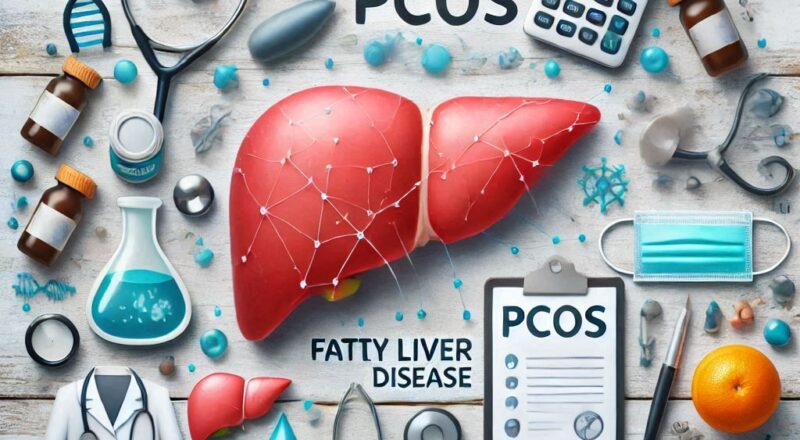Polycystic Ovary Syndrome (PCOS) is a hormonal disorder affecting millions of women worldwide. Characterized by irregular menstrual cycles, excess androgen levels, and often, polycystic ovaries, PCOS can have a significant impact on various aspects of health, including liver function.
Understanding the Link Between PCOS and Fatty Liver Disease
The exact mechanisms underlying the connection between PCOS and fatty liver disease are complex and not fully understood. However, several factors contribute to this association:
- Insulin Resistance:
- Insulin resistance is a common feature of PCOS. It occurs when the body’s cells become less responsive to insulin, a hormone that regulates blood sugar levels.
- As a result, the pancreas produces more insulin to compensate, leading to elevated insulin levels in the blood.
- High insulin levels can promote fat accumulation in the liver, leading to fatty liver disease.
- Increased Androgen Levels:
- Androgens, often referred to as male hormones, are produced in excess in women with PCOS.
- Elevated androgen levels can contribute to insulin resistance and fat accumulation in the liver.
- Androgens may also directly affect liver metabolism, leading to impaired fat processing.
- Chronic Inflammation:
- Chronic low-grade inflammation is another common feature of PCOS.
- Inflammation can damage liver cells and contribute to the development of fatty liver disease.
- Inflammatory markers, such as C-reactive protein, are often elevated in women with PCOS and are associated with an increased risk of fatty liver disease.
How PCOS Can Increase the Risk of Fatty Liver Disease
The combination of insulin resistance, increased androgen levels, and chronic inflammation creates a perfect storm for the development of fatty liver disease in women with PCOS. The following steps can occur:
- Insulin Resistance: As mentioned earlier, insulin resistance leads to elevated insulin levels, which can promote fat accumulation in the liver.
- Impaired Lipid Metabolism: Elevated insulin levels can also impair the liver’s ability to process fats, leading to further fat accumulation.
- Increased Triglycerides: High insulin levels can increase the production of triglycerides, a type of fat found in the blood. Elevated triglyceride levels can contribute to fatty liver disease.
- Inflammation and Oxidative Stress: Chronic inflammation and oxidative stress can damage liver cells and accelerate the progression of fatty liver disease.
Managing PCOS to Reduce the Risk of Fatty Liver Disease
While there is no cure for PCOS, lifestyle modifications and medical treatments can help manage the condition and reduce the risk of complications, including fatty liver disease:

- Healthy Diet:
- A balanced diet low in processed foods, sugary drinks, and unhealthy fats can help improve insulin sensitivity and reduce inflammation.
- A Mediterranean-style diet, rich in fruits, vegetables, whole grains, and healthy fats, is particularly beneficial.
- Regular Exercise:
- Regular physical activity can help improve insulin sensitivity, reduce inflammation, and promote weight loss.
- Aim for at least 30 minutes of moderate-intensity exercise most days of the week.
- Weight Management:
- Losing even a modest amount of weight can significantly improve insulin sensitivity and reduce the risk of fatty liver disease.
- Medications:
- In some cases, medications may be prescribed to manage PCOS symptoms and reduce the risk of complications.
- These medications may include metformin to improve insulin sensitivity, oral contraceptives to regulate hormones, and anti-androgen medications to reduce androgen levels.
By understanding the link between PCOS and fatty liver disease, women with PCOS can take proactive steps to manage their condition and reduce their risk of developing liver complications. Regular monitoring of liver function and a proactive approach to lifestyle modifications can help ensure optimal liver health.
